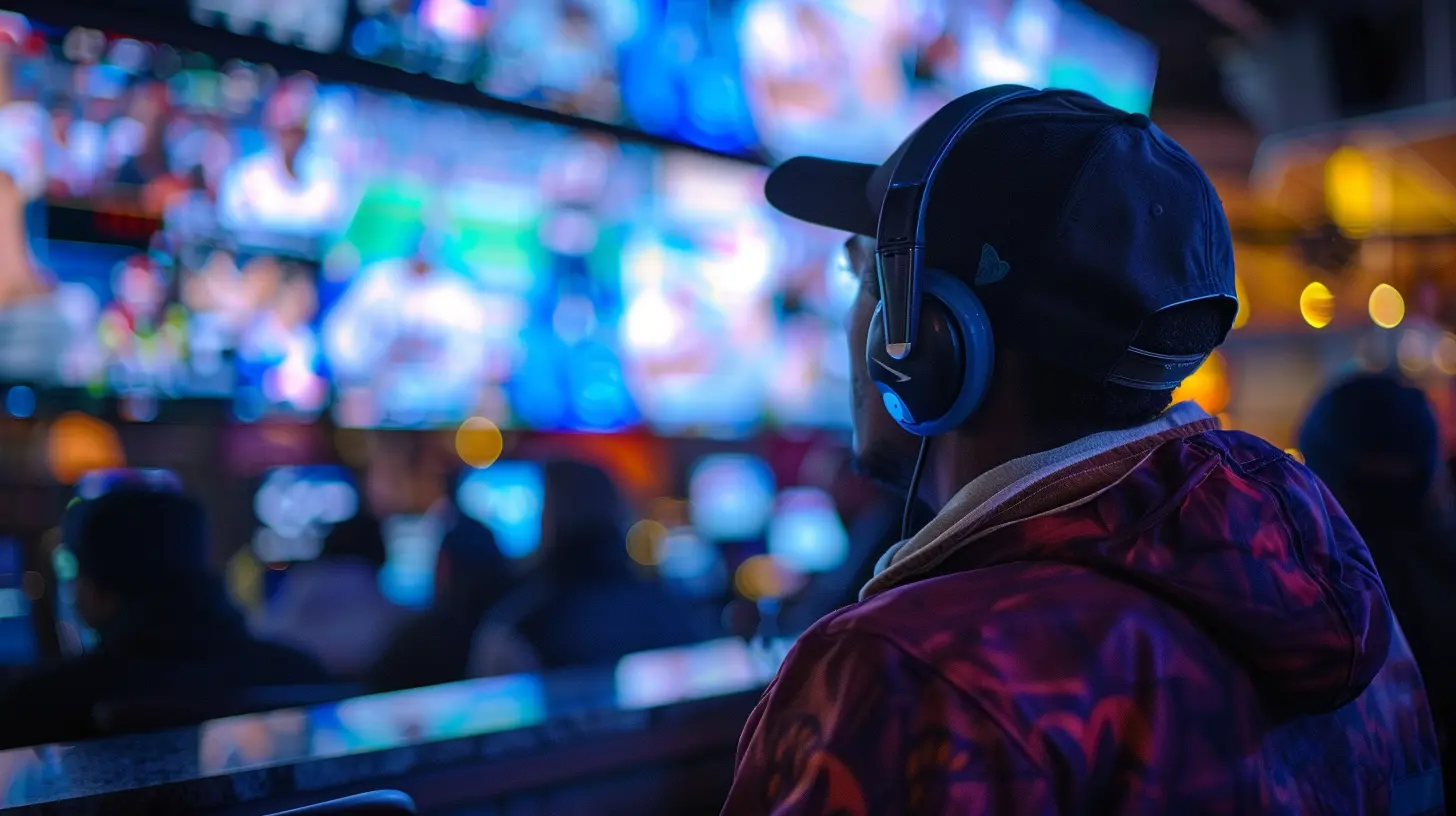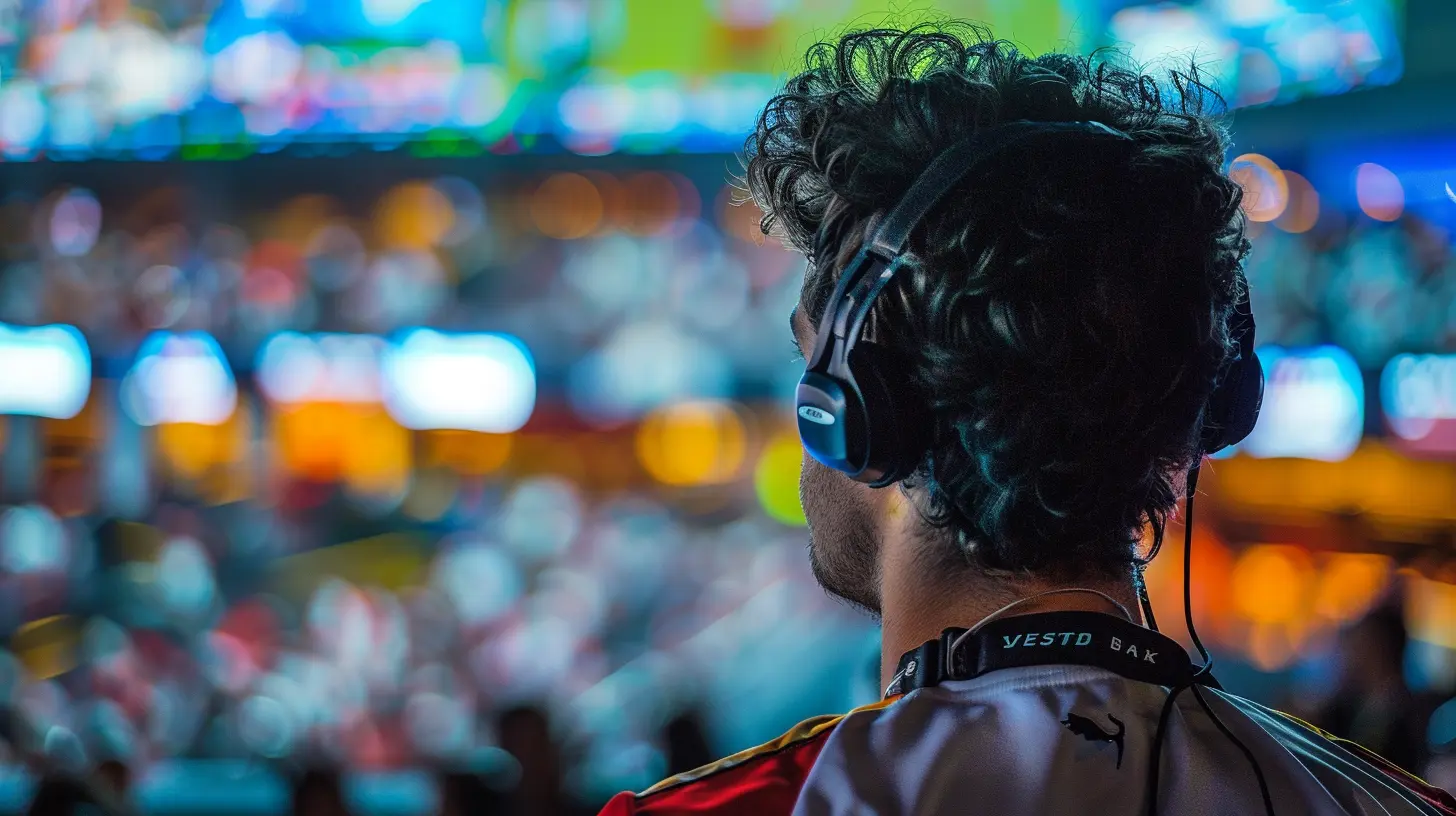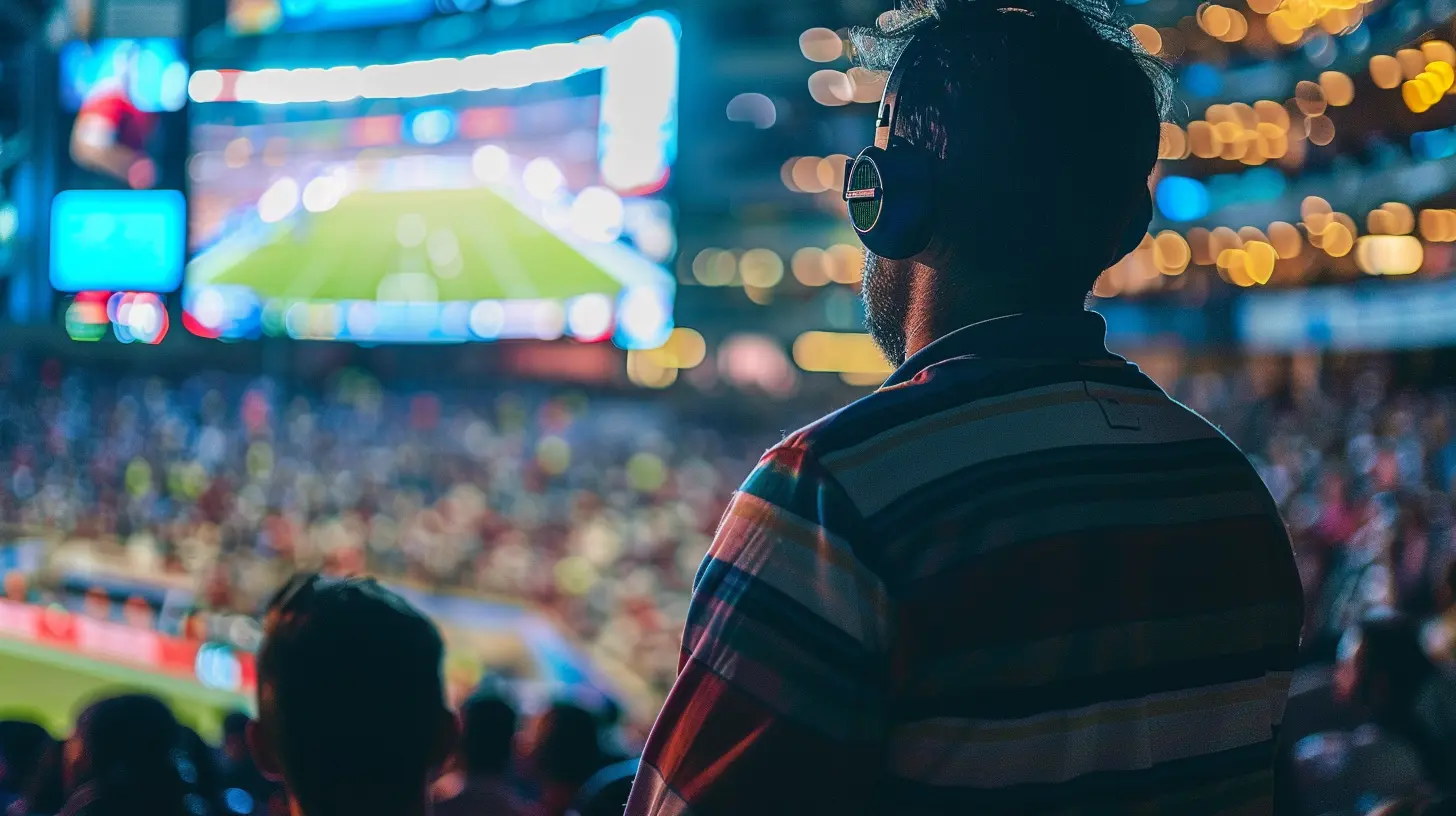The Impact of Delayed Broadcasts on Sports Fans and Bettors
6 November 2025
You’re sitting on the edge of your couch. The clock’s winding down, the game is hanging by a thread, and your team is about to pull off an insane comeback. But then—buzz. Your phone lights up with a notification: “TOUCHDOWN!” Wait what? You didn't even see the play yet.
Sound familiar?
Welcome to the frustrating world of delayed sports broadcasts.
This isn’t just an annoying lag in the action—it’s a real issue for fans and a major headache for bettors. Let’s dive into this rabbit hole and unpack the wide-reaching impact delayed broadcasts have on the people who love the game the most.
What Is a Delayed Broadcast Anyway?
Before we dig into the juicy stuff, let's clear up what we mean by “delayed broadcast.” Simply put, it's when what you're watching on TV or streaming is happening several seconds—or even up to a full minute—after the actual live event.Crazy, right? You’d think in 2024, we’d be watching sports in real-time, but nope. Whether it’s due to satellite delays, streaming lags, or built-in “safety buffers” for broadcasters, most live sports aren’t truly live when you’re watching them.
Why Delays Happen in the First Place
Here’s the low-down.1. Technical Processing
Broadcast signals go through several stages: capture, compression, satellite transmission, decoding, and release to your screen. Each of those adds a few precious seconds. If you're streaming on apps like ESPN+, YouTube TV, or any OTT (over-the-top) service, that delay can be even worse.2. Network Buffering
Streaming platforms intentionally build in buffers to ensure the stream doesn’t freeze or crash under heavy traffic. This helps your stream run smoothly—but it comes at the cost of real-time accuracy.3. Broadcast Regulations
Some networks add intentional delays for censoring reasons, just in case someone gets too rowdy with live mics. Remember that infamous Super Bowl halftime wardrobe malfunction? Exactly. No one wants a PR nightmare.
How Delayed Broadcasts Affect Sports Fans
Let’s face it: being a sports fan today means being online constantly—scrolling through Twitter (sorry, X), checking fantasy leagues, and texting your group chat during games.That’s where delays can totally ruin your experience.
1. Spoiler Alerts Gone Wrong
There’s nothing worse than getting a notification about a goal or basket before you even see it happen. It kills the drama, the suspense, and that high of watching something unfold live.2. Social Media Sync Issues
When you're reacting live on social media, you're technically late to the party. That meme you just posted about a missed field goal? Too late. Everyone already moved on to the next play.It changes the way we interact during games. Ever had to avoid social media just to dodge spoilers? Same.
3. Ruined Viewing Experience
Sports are built on emotion—those heart-racing, edge-of-your-seat moments. But when you hear your neighbor cheer or your phone buzzes with a final score before you've even seen it happen... that experience takes a nosedive.Honestly, it’s like watching a horror movie when someone already told you who the killer is.
The Bigger Blow: Impact on Sports Bettors
Now here’s where things get really dicey.For sports bettors—especially those into live or in-play betting—delay isn’t just annoying. It’s money on the line.
1. Live Betting Becomes a Gamble (Literally)
Live betting thrives on quick reactions. Missed that critical interception? You can’t adjust your bet. Why? Because by the time you saw it, it was old news. The sportsbooks already adjusted the odds.It’s like gambling with a blindfold. And sadly, most platforms don’t warn users about the delay. You think you’re betting live, but you're actually betting on replayed action.
2. The Rise of Courtsiding
Ever heard of courtsiding? It’s when someone physically attends a game and transmits info (like scores or plays) faster than the live broadcast. Some gamblers use these real-time updates to get an edge in live betting.While it might sound clever, it's a big red flag in betting circles and even considered cheating in some venues. It’s also the direct result of delayed broadcasts giving unfair advantages to people physically at the game or using faster data feeds.
3. Trust Issues with Sportsbooks and Broadcasting Networks
When fans and bettors feel they're being shortchanged by delays, trust in both broadcasters and sportsbooks takes a hit. Transparency is key, and hidden delays create a feeling of unfairness or even manipulation.The Psychological Toll: FOMO and Frustration
Yes, there’s an emotional side to all this.1. FOMO (Fear of Missing Out)
When your friends already saw the winning goal and you’re still 30 seconds behind? That’s peak FOMO right there.You try to time your reactions, hold off on checking your phone, and basically treat watching sports like a spoiler-sensitive TV show. That’s not how it should be.
2. Frustration Builds
It’s the small annoyances that add up—missed moments, ruined bets, delayed reactions. All of these chip away at the joy of the game.Eventually, you start asking: “Why even bother watching live if I’m always behind?”
The Tech Race: Is There a Solution?
The good news? Tech companies are aware of the problem, and there are signs of improvement.1. Low-Latency Streaming
Emerging technologies like WebRTC (Web Real-Time Communication) and low-latency HLS (HTTP Live Streaming) are helping reduce delays to just a couple seconds. Some platforms are even advertising “ultra-low latency” streams.While not perfect, they’re definitely improving the game-day experience.
2. Syncing Tools for Fantasy Sports and Betting
Some fantasy league apps now sync game data using official real-time feeds, making fantasy updates faster (and more accurate). Likewise, some sportsbooks are trying to offer betting experiences that match official data streams.Still, there’s a long way to go.
What Can Fans and Bettors Do Right Now?
Until broadcast technology catches up, here are a few things you can do:For Fans:
- Avoid social media during games (hard, we know).- Use audio-only feeds like radio or stadium narration apps—they often run closer to real-time.
- Watch games in-person when possible (zero delay, 100% raw emotion).
For Bettors:
- Stick to pre-game betting if latency is too risky.- Use sportsbooks with transparency about their data sources and feeds.
- Avoid live betting during high-stakes moments (when delays can hurt you the most).
Should We Just Accept the Delay?
Honestly? Not really.Fans and bettors pour time, emotion, and let’s be honest—money—into sports. They deserve better than a watered-down, behind-the-curve experience.
Technology exists to bring people closer to the action, not push them behind it. As consumers, we should demand better from platforms, networks, and sportsbooks.
Sure, a few seconds may not seem like much. But in sports, everything can change in a heartbeat—and no one wants to miss that moment just because their stream was a few seconds late.
The Future of "Truly Live" Sports
It may take time, but the future is looking more promising.Imagine watching a game on your phone in perfect sync with someone across the country. No spoilers, no delay—just live, raw sports emotion, the way it’s meant to be.
Until then, we’ll keep braving the lag, riding the spoiler wave, and placing our heartbreakingly late bets. But hey, that’s the beauty and chaos of being a sports fan in the digital age.
Final Thoughts
The impact of delayed broadcasts isn’t just a tech issue—it’s personal. It disrupts how we experience, share, and engage with the sports we love. For fans, it’s about emotion. For bettors, it’s about accuracy. But for everyone involved, it’s about being present in the moment.That moment shouldn't be delayed. It should be live, loud, and unforgettable.
Let’s hope the industry catches up—because in sports, every second counts.
all images in this post were generated using AI tools
Category:
Sports BroadcastingAuthor:

Frankie Bailey
Discussion
rate this article
1 comments
Kiera Richardson
“Delayed broadcasts are like giving a kid a cupcake and telling them to wait an hour before eating it. Sports fans and bettors deserve their thrills fresh out of the oven, not served cold! Let’s save the drama for the field, not the TV schedule!”
November 13, 2025 at 1:26 PM

Frankie Bailey
I completely agree! Timely broadcasts enhance the excitement for fans and bettors, keeping the adrenaline high and the experience authentic. Delays only dampen the thrill of the game.


